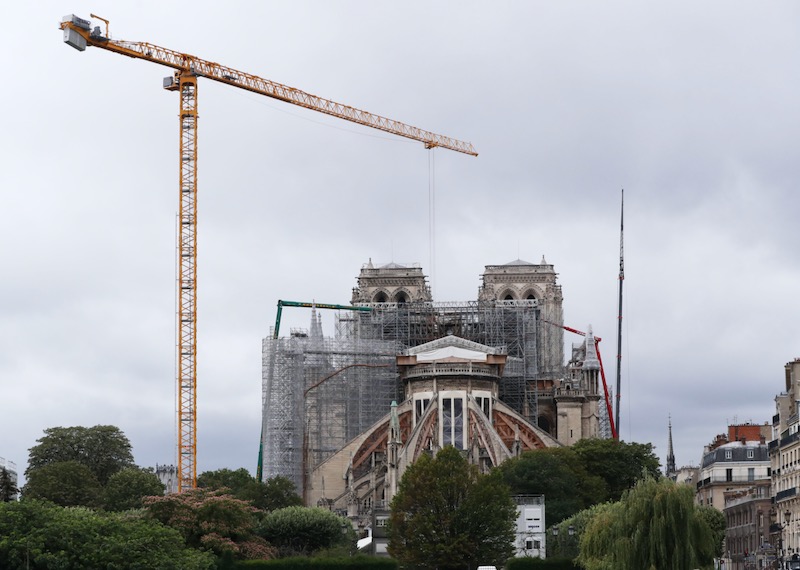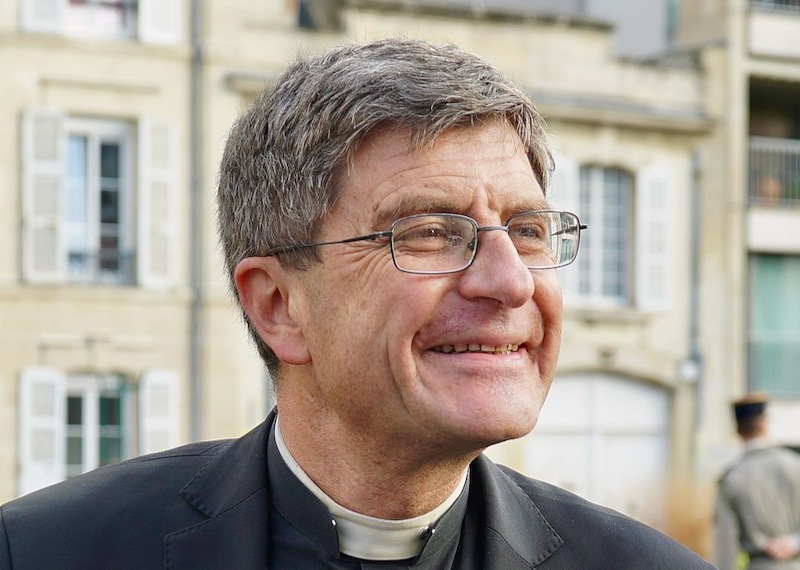Archbishop Eric de Moulins-Beaufort, head of the French bishops' conference, has said women religious should be allowed to vote in Vatican synods and future popes could be advised by a group of cardinals that also included women.
In a long interview with the monthly Noosphère, Moulins-Beaufort said the Church “cannot act as if human beings are minors who must be held by the hand” when most lay people are well educated and have actively chosen to live Catholic lives.
“The voice of all baptised laity, from the moment they try to live in a Christian way, should be able to count as much as that of the clergy,” he said.
“If they say only bishops vote [in synods], this would seem logical. But once priests and lay brothers can vote, I do not understand why they don’t let women Religious vote. It leaves me completely speechless,” he added, according to an advance text reported in the daily La Croix.
Recent Vatican synods such as one on the Amazon region last October allowed participating clerics and lay brothers to vote, but not women. Groups of nuns protested at the Vatican for the right to vote in the assembly.
Moulins-Beaufort said he thought “that the Holy See will one day be led by the Pope surrounded by a college of cardinals in which there would be women”. The Archbishop of Reims said he could also support a reform to allow deaconesses.
But he said these reforms could only work in a Church that is more decentralised and “fraternal” — a word understood in its universal sense in the country of liberté, égalité, fraternité.
While stressing equality, Moulins-Beaufort was cautious about ordaining women any time soon, arguing the Church first had to institute this more equal distribution of roles between clergy and laity, and men and women.
“The challenge of Church reform is to live at all levels this synodality, which must be rooted in fraternity,” he said. “Until we move forward [on this], I fear that dealing with the issue of ordained ministries will weigh down the structure and hinder progress.”
The leading bishop in France, the European country with the largest Muslim minority, also expressed doubts about the Islamic world’s ability to adjust to modernity, saying it has long been in “a great crisis” and vulnerable to “politicisation by Islamist movements”. He said one illustration was Islam’s difficulty in interpreting the Qu’ran, which Muslims believe is the direct word of God rather than revelation written by humans.
The increasing personal freedom of modern life “can ultimately only erode the family, social and religious frameworks advocated by Islam,” he said.



 Loading ...
Loading ...